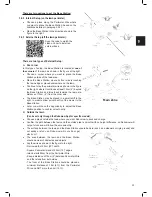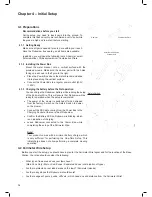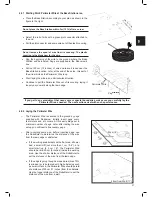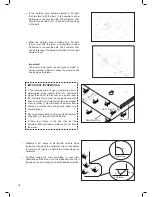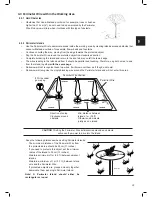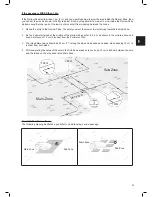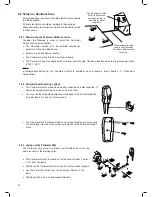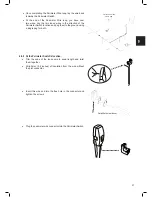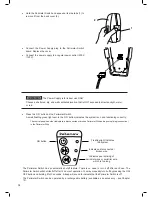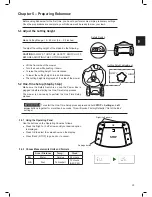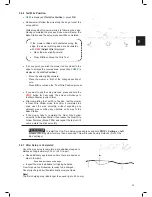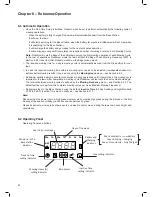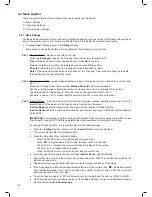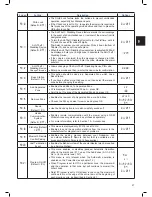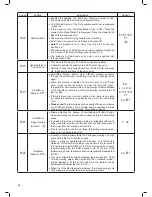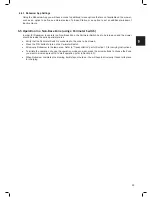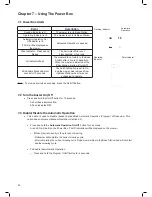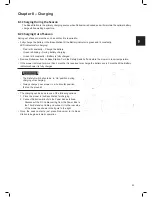
26
4.8
Setup in a Non-Base Zone
A Non-Base Zone is an area of the lawn that is not connected
to a Base Station.
A Perimeter Switch should be installed in these areas.
When necessary, the Perimeter Switch can be easily moved
to other zones.
4.8.1 Determining the Perimeter Switch Location
Consider the following in order to install the Perimeter
Switch at an optimal location:
•
The Perimeter Switch is to be installed outside the
perimeter of the Non-Base Zone.
•
Select a dry and sheltered location.
•
The Perimeter Switch is to be mounted vertically.
•
The Perimeter Switch is supplied with an indoor power supply. Choose a location close to a regular power outlet
(230V / 120V).
Note:
a rechargeable battery for the Perimeter Switch is available as an accessory (See Chapter 12 – Robomow
Accessories).
4.8.2 Perimeter Switch placing options
•
The Perimeter Switch connector is easily connected and disconnected. It
allows for quickly switching from one zone to another.
•
You may use the large stake, attached to the back of the Perimeter Switch,
to easily insert it in and out of the ground.
•
You may mount the Perimeter Switch on a vertical surface, such as a wall
or deck railing. Use the three marks on the back of the Perimeter Switch
cover.
4.8.3 Laying out the Perimeter Wire
The perimeter wire setup in a Base and Non-Base Zone are the
same, except for the starting point:
•
The Perimeter Switch is placed out of the area (at least 1 meter /
3.3 ft. from the lawn).
•
Start to lay the Perimeter Wire from the Perimeter Switch location.
•
Lay the Perimeter Wire from the Perimeter Switch to the
lawn.
•
Start laying the wire in anticlockwise direction.
The Perimeter Switch
MUST be Mounted
vertically in order to
maintain its’ water
resistance
Wires leading from the
lawn to the Perimeter
Switch are adjacent and
touching.
Min. 1m (3ft)
Min. 1m (3ft)
Summary of Contents for MC1200
Page 1: ......
Page 58: ...57 EN ...


